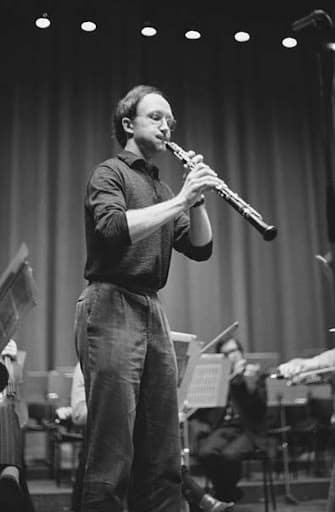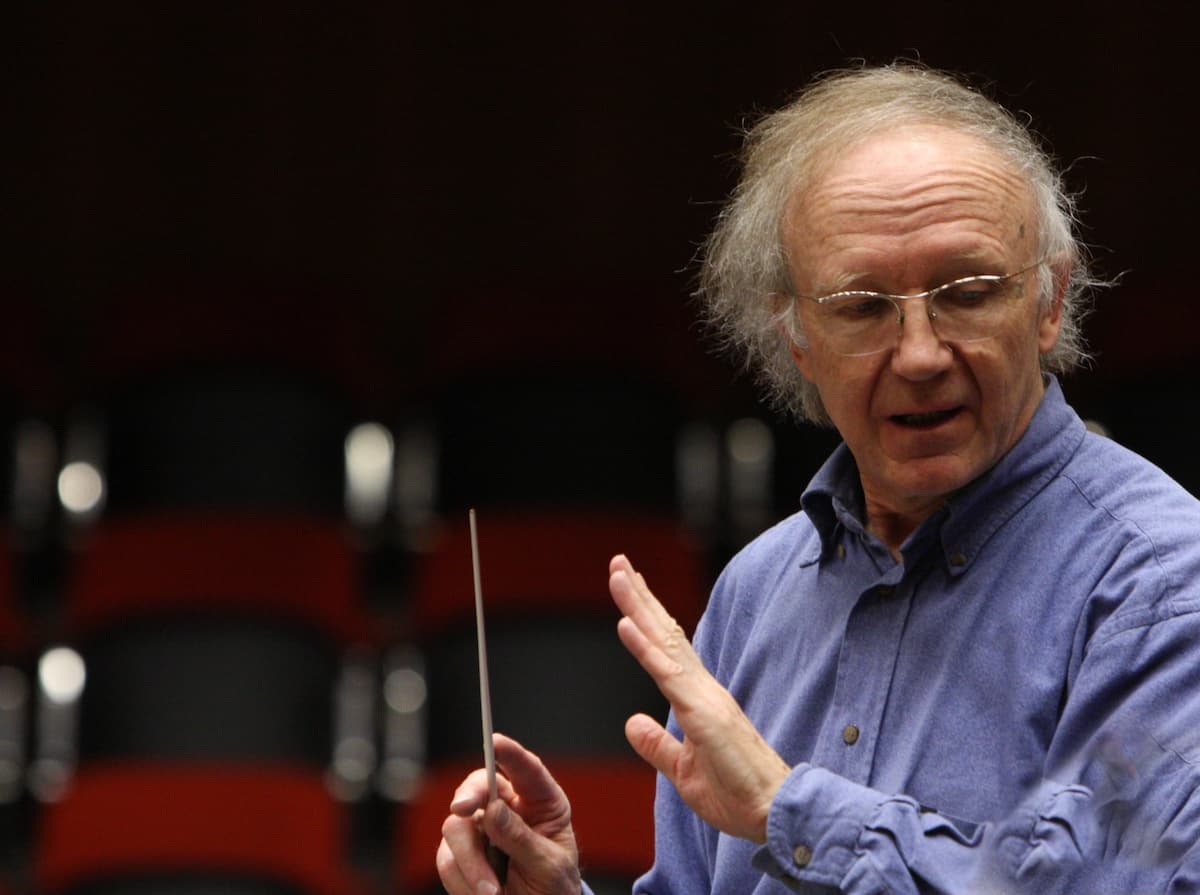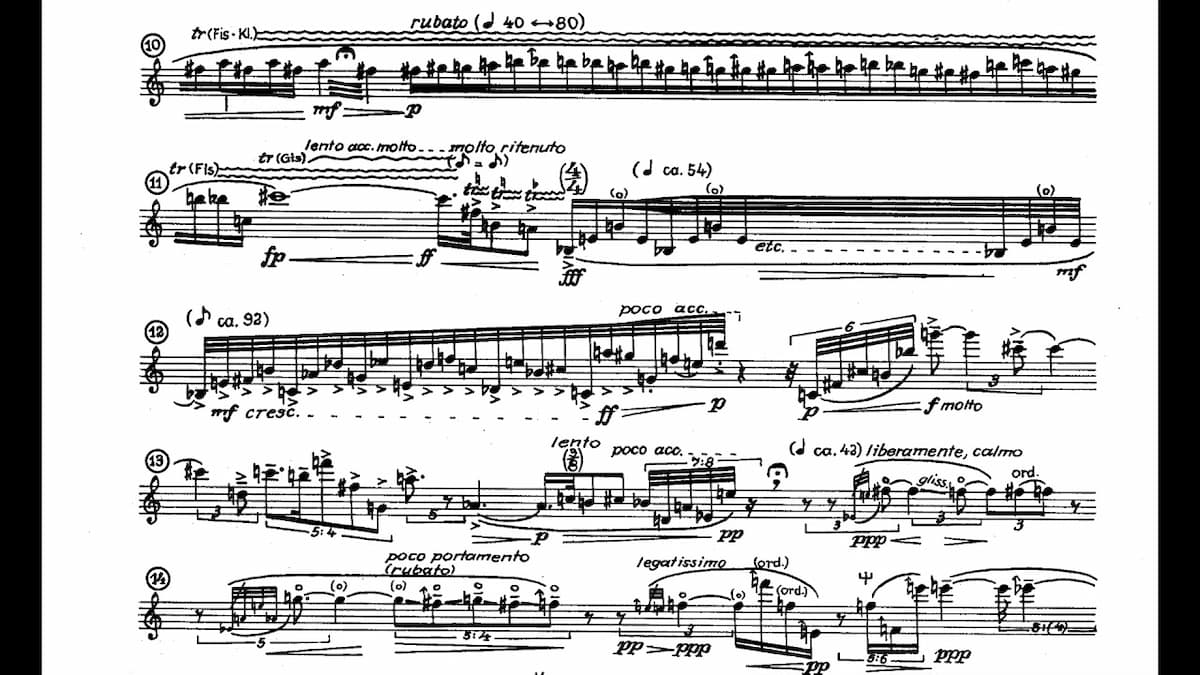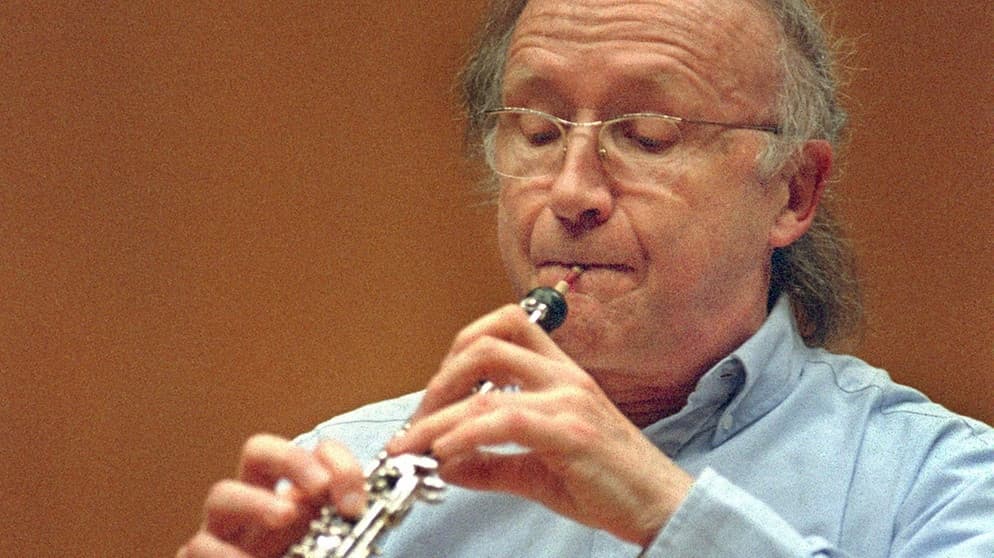He may well be one of the most versatile and extraordinary musical personalities of our time. The conductor, composer, oboist, and pianist Heinz Holliger has never stopped searching for the limits of human experiences. Celebrated for his versatility and technique, Holliger is among the most prominent oboists of his generation, inspiring a multitude of commissions. As a composer, Holliger has achieved international recognition and honours for his commitment to contemporary music.
Heinz Holliger Plays Mozart’s Oboe Concerto, KV 314
Childhood

The young Heinz Holliger
Born in Langenthal, in the canton of Berne, on 21 May 1939, Holliger grew up in the Swiss countryside. His parents were not particularly musical, even though his father was an amateur violinist. Heinz started to play the recorder when he was about four years old and added the piano at the age of six. As he remembers, “I should like to have begun the oboe about then, but there was nobody to teach me in our village.” In fact, Holliger initially tried the clarinet for three months before starting with oboe instructions in earnest at the age of 11 in Berne.
Holliger confesses that he had always been fascinated by the timbre of the oboe, “even when I heard it badly played in our local orchestra.” He initially studied with Emile Cassagnaud at the Berne Conservatory while attending grammar school. He remembers going to Paris during holidays, and when he finished school, he studied for a year at the Conservatoire Nationale. He remembers being “disappointed in the oboe teaching there—I just had to play a lot of scales—but I learned a lot about the piano.”
Jan Dismas Zelenka: Trio Sonata No. 1, “Larghetto” (Bern Camerata; Alexander van Wijnkoop, cond.)
Composition

During his time at the Paris Conservatoire, Holliger studied piano with Yvonne Lefébure and also met Messiaen. As he remembers, “I wasn’t sufficiently knowledgeable to benefit from his music, having been brought up in a conservative atmosphere.” However, at that time, Holliger was already writing music. Actually, Holliger had been composing from around the age of ten, around the same time he started taking oboe lessons.
As he explained in an interview with Gramophone Magazine, “I suppose I wrote in a kind of impressionistic style, very imitative. Of course, at first, you start imitating your style, but by the time you’re fifteen or sixteen, you can develop something.” Holliger would study composition with Sándor Veress, and later at the Basle Academy, with Pierre Boulez. Holliger later composed a monody for large orchestra (S)irato in memory of his teacher.
Heinz Holliger: (S)irato (Basel Symphony Orchestra; Heinz Holliger, cond.)
Career Start

Heinz Holliger’s Etude for Oboe
Holliger only got second prize for oboe playing at the Conservatoire, and he got angry and left. Two months later, “I won the first prize at the Geneva competition, and the French students who had done well in Paris got nothing, much to their annoyance.” Winning at Geneve translated into engagements and job opportunities, and he was hired as an oboe player in the Basel orchestra.
Holliger followed up by winning the Munich competition in 1961, and he was much in demand. He also started to record, but he’d “rather forget his recording debut with a small company.” However, in 1964, he produced his first serious recording for Deutsche Grammophon, committing a Mozart Concerto to disk. A good number of recordings were produced by Philips from 1966, and he also made several records with I Musici. More recently, he has issued recordings with ECM.
Heinz Holliger Performs Vivaldi’s Concerto in C Major, RV 452
Conducting and Commission

Holliger’s foray into conducting started from necessity. It all began with his own compositions, and ensembles started to correspond to his conducting enthusiasm with a blend of fantasy and fantastic precision. However, conducting also offered an experience that the oboe repertoire did not offer. He writes, “as a soloist, I have played a lot of baroque music, but as a conductor that doesn’t appeal to me at all. Schumann‘s oratorios, on the other hand, are a real treasure trove, but hardly anyone knows these pieces or performs them. Just like the operas by Haydn and Schubert, incredible treasures that lie completely unused.”
A good many composers have written works specifically for Holliger, including Luciano Berio, Elliott Carter, Hans Werner Henze, Ernst Krenek, Witold Lutosławski, Frank Martin, Krzysztof Penderecki, Henri Pousseur, Karlheinz Stockhausen, Sándor Veress and Isang Yun. In addition, several works have been written for Holliger and his wife, Ursula Holliger, a renowned harpist. Among them are double concertos by Martin, Henze, Krenek, and Lutosławski. Holliger himself was asked by Mstislav Rostropovich to write a composition for the occasion of Paul Sacher’s 70th birthday, and he contributed a “Chaconne for Violoncello Solo.”
For more of the best in classical music, sign up for our E-Newsletter
